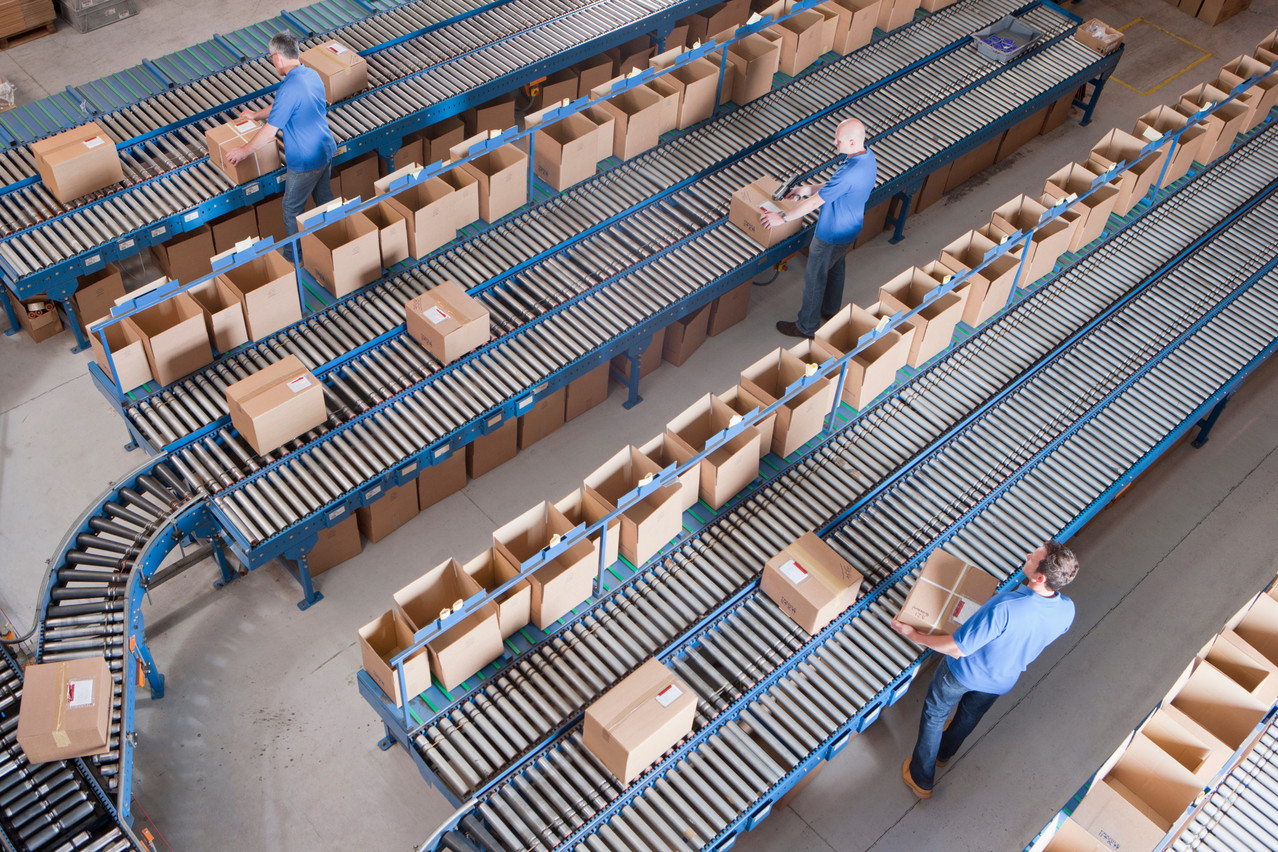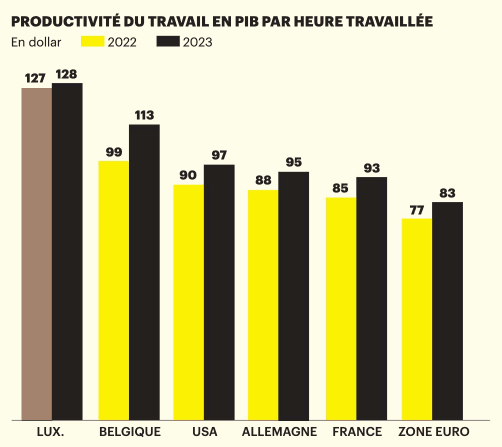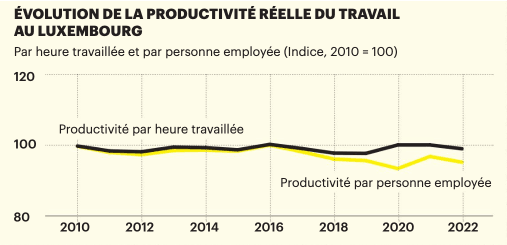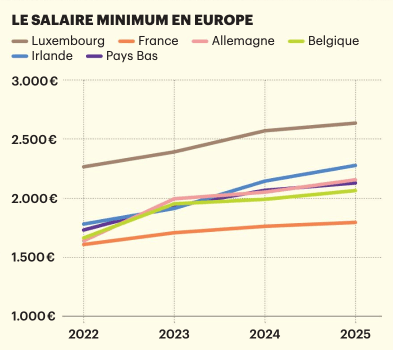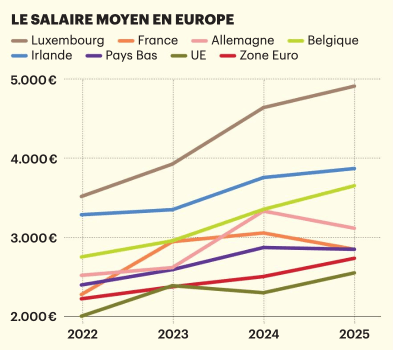Competitiveness, yes. But what for? The European Union defines competitiveness as the ability of a country to achieve a sustainable improvement in the standard of living of its citizens, and to provide a high level of employment and social cohesion in a high-quality environment.
How is it measured? Competitiveness can be defined as a country’s ability to face up to competition, but it depends on two closely linked factors: production costs--known as price competitiveness--and non-price or structural competitiveness, a concept that covers a country’s attractiveness to investors. It’s a multi-dimensional aspect in which the issues of housing, infrastructure, and attracting and retaining talent figure prominently.
This multi-dimensionality is reflected in the coalition agreement. Competitiveness encompasses financial strength, the reduction of administrative barriers, innovation, access to competitive resources and a business-friendly environment. This refers to the following elements: maintaining the triple-A rating, reducing the administrative burden on businesses, ensuring fair international competition conditions, competitive energy prices, support for the development of industry and its efforts to decarbonise and digitalise production processes, and maintaining the stability of the financial sector. These are all areas in which the government has launched legislative initiatives, which are summarised in the “Roadmap” section of this Politradar.
The right cost
Where do we stand today? If we look at price competitiveness, Luxembourg’s position appears contrasting. On the one hand, Luxembourg’s productivity remains high--Luxembourg is 1.5 times more productive per hour worked than the average for eurozone countries--but it is stagnating. Since 2010, notes the National Productivity Council--the successor to the Competitiveness Observatory--the level of real productivity has moved up and down since 2010, fluctuating around a growth rate of -0.2% on average.
Labour productivity remains high in Luxembourg. In 2023, gross value added per hour worked was $128.80, expressed in purchasing power parity (PPP) and at current prices. This puts the grand duchy well ahead of other countries. However, the trend in real labour productivity in Luxembourg over time is less positive. Real productivity per hour worked has largely stagnated since 2010 and even shows a downward trend between 2021 and 2023.
At the same time, the country’s main trading partners have seen their real productivity per hour worked increase overall. In other words, Luxembourg’s comparative advantage in terms of labour productivity per hour worked is diminishing more and more. It’s an untenable situation in the long term if the current level of social protection is to be maintained.
Paths for a rebound
Faced with these statistics, economy minister (DP) asked the national productivity council (Conseil national de la productivité, CNP) in January 2024 to draw up recommendations to boost productivity growth.
The first recommendation is to make productivity a political priority by raising awareness in all quarters--civil society included--of the impacts that prolonged stagnation in productivity generates. The next step would be to use the general levers to promote productivity.
According to the council, the first step is to make the regulatory framework more flexible--without, however, calling into question the basic objectives of the regulations (environmental protection, protection of workers, etc.) and their quality. It’s a lever at the heart of current affairs in Europe--as we have just seen with the on reducing the administrative burden on businesses--and in Luxembourg. Prime minister (CSV) reminded us of this during his : “To renew our competitiveness, we need two things above all: a competitive legal and fiscal framework and strategies for ecosystems in specific sectors.”
Concretely, the CNP is making the digitisation of procedures and the introduction of the once-only principle the first step in gaining efficiency. Digitalisation minister (DP) has tabled a bill laying the foundations for the principle, which will be extended to all administrations as it is rolled out.
Innovate and govern well
The second strand concerns innovation. The CNP advocates increased spending on research and development and the adoption of a fast-follower approach. “The state must provide itself with the necessary resources to monitor the creation of innovation at international level and encourage its dissemination throughout the Luxembourg economy,” summarises the council. “Due to the specialisation and size of the Luxembourg economy, Luxembourg is not able to carry out R&D in all sectors. Luxembourg will therefore need to be able to become a fast follower, i.e., to develop the capacity to adopt and integrate innovations, made inside and outside the country, into the production process.”
The CNP then cites the problem of corporate governance, stating that “numerous studies suggest a positive link between managerial skills within a company and its productivity” and notes that “Luxembourg seems to suffer from a lack of managerial skills in international comparison.” It’s a problem that goes back to the recurring theme of attracting talent.
The productivity council then invites the government to help the development of businesses by eliminating zombie companies--“whose exit from the market would enable the resources freed up to be redirected towards more productive jobs”--and by promoting the growth of startups by facilitating their access to finance and simplifying their access to international markets.
AI, energy and talent
There are other levers the government can use--and it is indeed using them. It has, for instance, lowered the rate of corporate taxation. A highly symbolic measure, particularly in terms of nation branding.
The grand duchy then played the artificial intelligence card. In April, the government drew up a strategic roadmap in this area. Its objectives are to develop the digital skills of all citizens, strengthen secure and sustainable infrastructures, accelerate the digital transformation of businesses and digitise public services. Luxembourg’s participation in the European Union’s EuroHPC programme--aimed at building a European ecosystem for training advanced AI models--is good news. Luxembourg is thus positioning itself on the AI map.
Having competitive energy prices is also a key element. “The government will step up its efforts to ensure access to renewable energy at a stable and competitive price,” reads the coalition agreement. And there is one renewable energy that is of particular interest to the government and the economy minister: hydrogen. Minister Delles is making the deployment of a hydrogen transport network a priority. In the new version of the integrated National Energy and Climate Plan, a budget of €60m is earmarked for this.
The issue of talent is also on the agenda. The facts are simple: Luxembourg is not producing the talent it needs. The situation was tenable as long as the country managed to attract labour from abroad, but this system has now reached its limits. To address the problem, the government in June 2024 created the High Committee for the Attraction, Retention and Development of Talent, an advisory body responsible for providing Luxembourg with a concrete marketing strategy, serving as a roadmap to elevate the nation to the status of an international destination to work and live.
At its second meeting in December of the same year, the high committee made two key proposals: building a high-performance digital ecosystem to facilitate the relocation process and increasing the country's presence at major international events (Web Summit, Vivatech, World Summit AI...). The next meeting of this committee is scheduled for the spring.
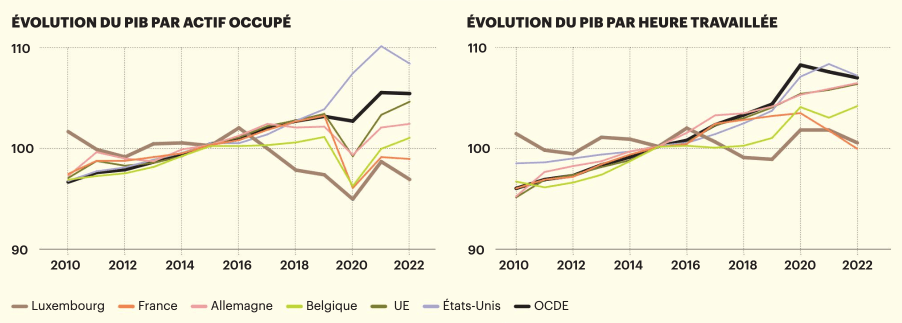
Evolution of GDP per employed person and per hour worked. Graph: OECD
The impact of artificial intelligence
Whilst AI promises to significantly increase labour productivity over the next decade; its diffusion in companies remains limited for the time being and varies greatly depending on the sector of activity. According to the national productivity council, 31% of companies in the information and communications sector are already using at least one AI technology. This figure rises to 22% in specialist, scientific and technical activities and 16% in manufacturing. Use also varies greatly according to the size of the company: 41.2% of large companies are using it, compared with only 19.7% of medium-sized companies and 12.3% of small companies. This rate of use is still higher than in the EU.
23rd
In 23rd position in the overall ranking of the World Competitiveness Yearbook 2024 by the International Institute for Management Development (IMD), . In two years, the country has dropped 10 places. According to the IMD, this downgrade can be blamed primarily on a growth stall observed since 2022, a fiscal and administrative cage that “gives cause for concern,” persistent administrative obstacles hindering business competitiveness--wage indexation, lack of skilled labour, poor managerial practices, to cite a few--and an R&D ecosystem “in need of consolidation.”
Competitiveness: the government’s roadmap
Taxation
- As of 1 January, the rate of corporate tax (impôt sur le revenu des collectivités, or IRC) has been cut from 17% to 16% in the name of “strengthening competitiveness.”
Administrative simplification
- 6 June 2024: Tabling of bill 8395 on the use of data and the “once only” principle. This principle obliges the state, ministries and local authorities to share the data they hold on citizens and businesses whenever it is needed to process a request initiated by them. The principle of administrative simplification can be found across the board in other bills.
Energy and the sustainable economy
- The revision of the National Energy and Climate Plan (PNEC) 2021-2030 has led to the tabling of several bills of interest to businesses: bill 8462 establishing an aid scheme for the transition to a net-zero emissions economy and bill 8386 renewing the environmental and climate protection aid scheme. These texts are currently being examined.
- On 12 December 2024, the government tabled a new version of bill 8298 designed to implement the hydrogen strategy adopted in 2021. This is a priority for economy minister Lex Delles. On 6 June, he and the minister for research and higher education, Stéphanie Obertin, ,” a €39m project to produce green hydrogen from 2026.
- On 20 December, bill 8474 amending the Law of 26 July 2022 on the aid scheme for companies investing in charging infrastructure for electric vehicles and bill 8475 amending the amended Law of 9 August 2018 on an aid scheme for SMEs were tabled. Both aim to improve the visibility of the various aid schemes and to simplify and speed up obtaining them.
Artificial intelligence and digitalisation
- 13 March 2024, tabling of bill 8364 concerning measures to ensure a high level of cyber security transposing Directive (EU) 2022/2555 of 14 December 2022.
- On 24 April 2024, the cabinet adopted the national strategic roadmap relating to the digital decade up to 2030 for Luxembourg.
- On 11 October, the cabinet authorises the project to integrate a quantum computer system into the Meluxina HPC environment.
- On 13 December, Luxembourg’s application in the context of the European Union’s European High Performance Computing Joint Undertaking . The council approves the acquisition of a supercomputer optimised for artificial intelligence and the establishment of an associated AI Factory.
- On 23 December, bill 8476 on the AI Act is tabled.
Labour
- On 27 July 2024, the law on “blue cards,” or work permits for non-EU nationals with highly qualified profiles, comes into force.
- On 12 December 2024, tabling of bill 8456 amending article L. 231-4 of the labour code on Sunday working, the duration of which is increased to eight hours from the current four.
- On 20 December 2024, tabling of bill 8472 on opening hours in the trade and craft sector.
This article was written in for the of Paperjam magazine, published on 26 March. The content is produced exclusively for the magazine. It is published on the site to contribute to the full Paperjam archive. .
Is your company a member of Paperjam Club? You can request a subscription in your name. Let us know via
